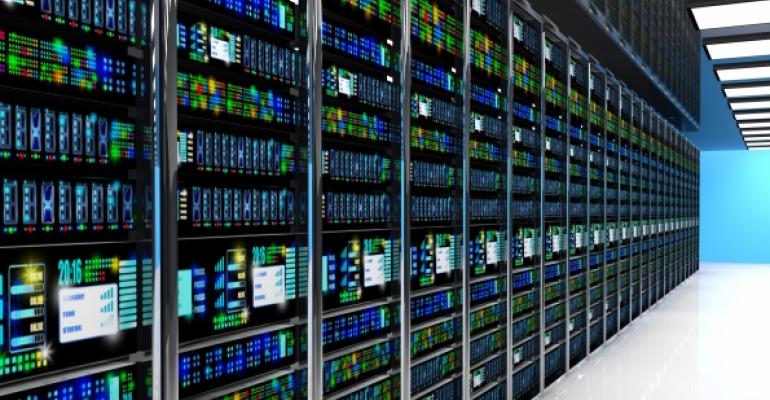Interior photos of data centers depict them as digitized library stacks, quiet floors filled with endless rows of server units. It might seem like a placid setting, but outside those walls, a debate is stirring about whether public officials that give construction authorization for the properties are shortchanging their communities when they strike property tax incentive deals.
Property tax incentives for data centers are a modern iteration of similar deals struck for city and state-sponsored financing of stadiums and sports/entertainment arena projects. The data center industry is growing. According to consulting firm Allied Market Research, the hyperscale data center market is expected to achieve a compounded annual growth rate of 20.7 percent from 2016 to 2022, and attain revenues of $71.2 billion by 2022.
Investors interested in data storage properties will inevitably encounter the debates about tax incentives as they weigh opportunities in the sector. They might also have to weigh how much of the alternative asset class belongs in their portfolios, because while communities strive to claim the prestige of negotiating deals with the major data center users, including Google, Apple, Microsoft, Facebook and Yahoo, the luster quickly wears off.
Once construction is complete, each data center is operated with minimal personnel, usually 45 employees to maintain the equipment and provide the highest levels of security. The low staffing and slim ongoing economic returns do little to offset the hundreds of millions of dollars awarded in tax incentives in some cases, observers say. Not even school grants and free Wi-Fi service on city properties can shift the balance, critics note.
“The subsidies are not enriching the construction firms. They are enriching Microsoft and Google—and their shareholders,” says Dave Swenson, an associate scientist in the department of economics at Iowa State University. “I think that the competition will continue, if not increase, for subsidies.”
In the data center industry, construction costs are measured per megawatt of power needed to support the power draw for IT equipment and cooling of the data center. A 100,000-sq.-ft. project might require about five megawatts of power, with costs ranging from $6.5 million to $9 million per megawatt, plus the shell cost for the large data center REITs, according to Alan Howard, an analyst at Wired Real Estate Group, a data center advisory and brokerage firm headquartered in Las Vegas.
The location of the project, and the need for power and cooling redundancy back-ups in case of a power outage, ultimately drive the pricing, Howard says.
“These are the basics, but data centers are complex long-term fixed asset investments with many variables that can drive costs,” he notes. “The risk profile is high and investors need to be aware of how those variables impact pricing and ROIC.”
Currently, the towns of West Jordan, Utah and the Village of Los Lunas, N.M., which are competing to attract a new Facebook data center, have landed in the middle of the debate. In both cases, millions of dollars in property tax incentives are on the table. The Associated Press reported that West Jordan offered a package with $240 million in incentives, which it rescinded after facing public resistance. Negotiations have since restarted, although the value of the current incentives are not clear.
Separately, Los Lunas was considering exempting a proposed Facebook data center from property taxes for 30 years. After that, the community would collect yearly payments of $50,000, with annual increases that would be capped when payments reached $500,000, the Associated Press reported.
A lot of incentives are in the balance for the Facebook data center, especially for Los Lunas. Earlier in August, the community had approved several agreements with Facebook’s subsidiary Greater Kudu, LLC for water capacity guarantees worth $10 million, according to local press reports. Data centers also require water for cooling purposes.
Large technology firms like Facebook, as well as power companies and financial services firms, tend to build their own data centers, Howard notes. Sometimes the companies lease space from public data center REITs, including CyrusOne and DuPOnt Fabrose Technologies.
The relative paucity of ongoing economic benefits to a community is also stoking criticism of the deals. But that’s not likely to stop public officials from providing the incentives to data center developers and users.
“We have a long history of inter-community competition for capital and jobs,” Swenson says. “It has positioned political leaders to behave in whatever way possible … to take credit for any kind of capital or development in their region."

